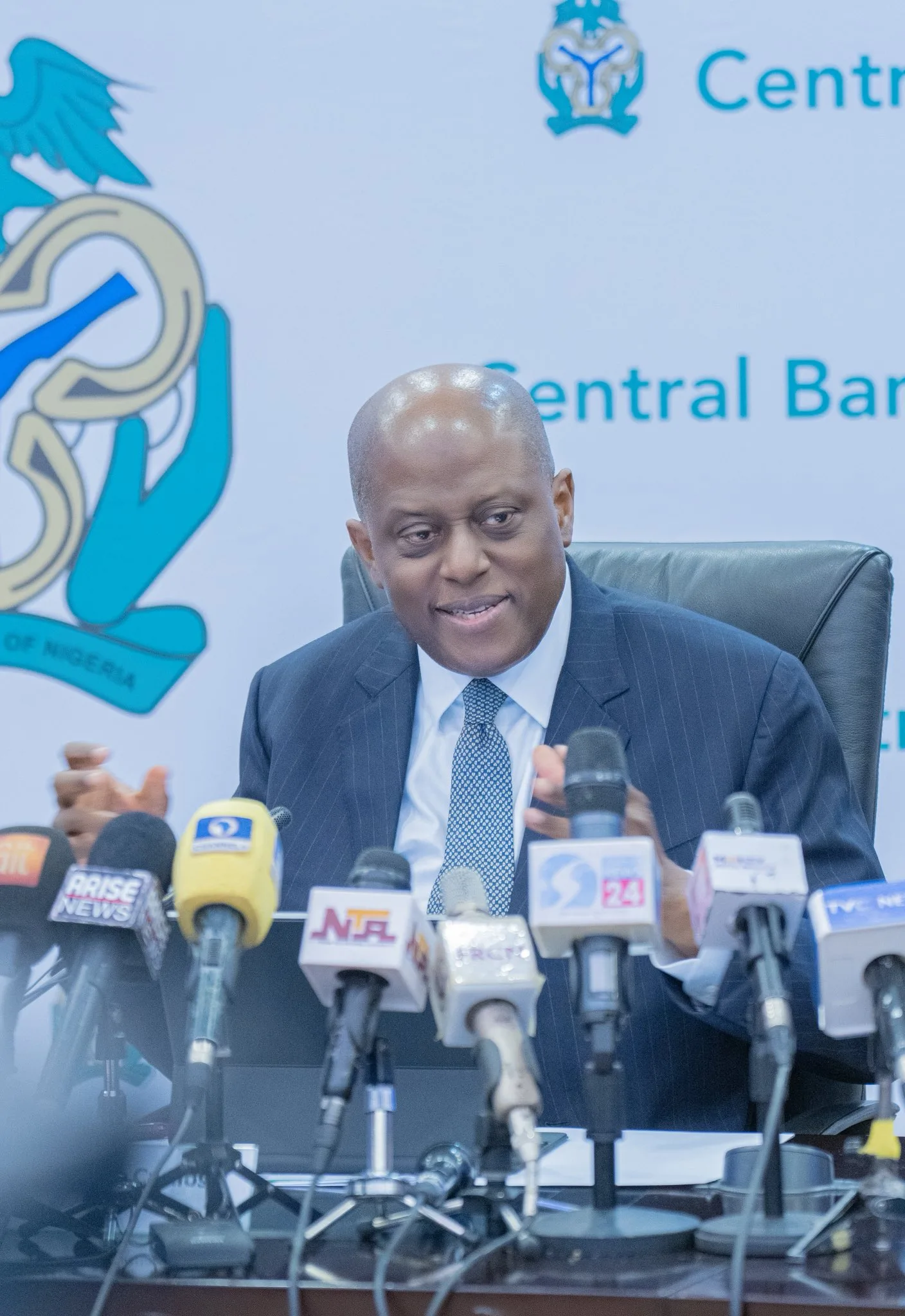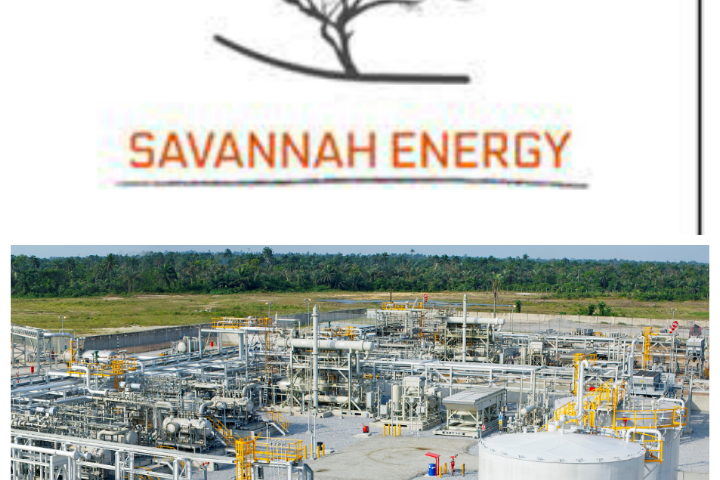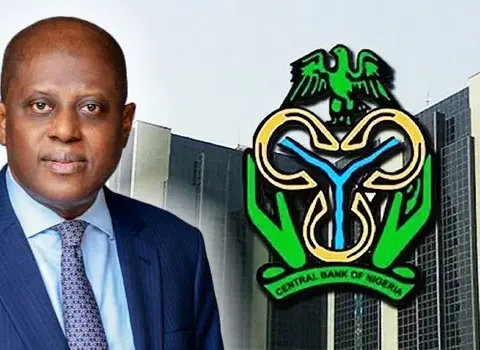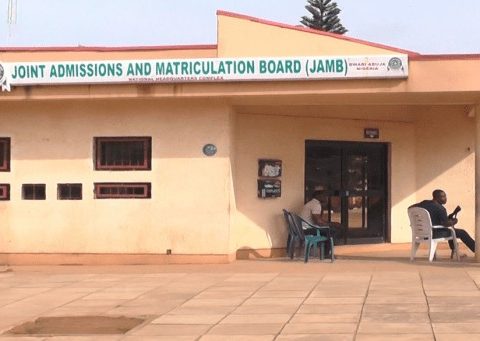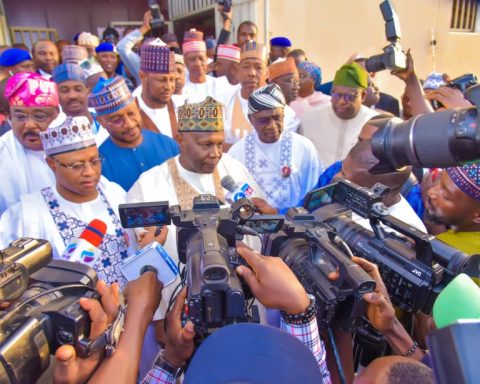The Central Bank of Nigeria’s (CBN) Monetary Policy Committee (MPC) has called on the fiscal authority to strengthen efforts towards enhancing foreign exchange earnings for the country, especially from oil and gas and non-oil exports.
The committee made the call during the 300th MPC meeting held at the CBN headquarters in Abuja on Monday, 19 and Tuesday, 20 May 2025.
Join our WhatsApp ChannelAccording to a communique read by the CBN Governor, Dr Olayemi Cardoso, at the end of the meeting on Tuesday, the MPC again decided to retain the Monetary Policy Rate (MPR), the benchmark interest rate, at 27.50 per cent.
This is the second time the CBN’s MPC retained the interest rate at 27.50 per cent after raising it to that figure in November 2024.
Prime Business Africa had reported that during the MPC meeting held in February 2025, the committee voted to retain the MPR at 27.5 per cent, emphasising the need for caution in light of the uncertain global situation.
In its quest to curb inflationary pressure, the CBN had raised the MPR by 875 basis points from 18.75 per cent as of February 2024 to the current figure.
According to the communique, the MPC decided to retain the asymmetric corridor around the MPR at +500/-100 basis points. It also retained the Cash Reserve Ratio of Deposit Money Banks at 50.00 per cent, Merchant Banks at 16 per cent, and also retained the Liquidity Ratio at 30.00 per cent.
READ ALSO: Inflation: Concerns About CBN’s Monetary Policy Impact As 91% Of Naira Outside Banks
The Committee noted the relative improvements in some key macroeconomic indicators, which are expected to support the overall moderation in prices in the near to medium term.
He said these include narrowing of the gap between the Nigeria Foreign Exchange Market (NFEM) and Bureau De Change (BDC) windows, the positive balance of payments position, and a drop in the price of Premium Motor Spirit (PMS).
“Members also noted with satisfaction the progressive moderation in food inflation and, therefore, commended the government for implementing measures to increase food supply as well as stepping up the fight against insecurity, especially in farming communities.”
The Committee encouraged security agencies to sustain the momentum while the government provides necessary inputs to farmers to boost food production further.
While noting new policies introduced by the Federal Government to boost local production, reduce foreign currency demand pressure, and mitigate the effect on domestic prices, the MPC, however, acknowledged “underlying inflationary pressures driven largely by high electricity prices, persistent foreign exchange demand pressure and other legacy structural factors.”
It further stated that, given the relative stability observed in the foreign exchange market, MPC members urged the CBN to sustain the implementation of the ongoing reforms to boost market confidence further.
It, however, expressed concerns about the recent decline in crude oil prices, “attributable to increased production by non-OPEC members as well as uncertainties associated with U.S. trade policy, which present new challenges for fiscal receipts and budget implementation.”
Banking System Stability
The Committee reaffirmed the continued stability of the banking system following notable improvements in key performance indicators and observed the appreciable progress in the ongoing recapitalisation exercise.
It urged the apex bank to sustain its oversight of the industry “to ensure compliance with regulatory and macroprudential guidelines.”
Why MPC decided to hold the current Policy
The communique said the MPC members decided to maintain the current policy measures after considering the current economic indicators and other factors such as the “continued uncertain policy environment, exacerbated by ongoing global shocks to enable a better understanding of near-term development.”
It added that the MPC members “reaffirmed their commitment to prioritise policies targeted at anchoring inflation expectations and easing exchange rate pressure.”
The recent Consumer Price Index (CPI) report released by the National Bureau of Statistics (NBS), revealed that the headline inflation declined year-on-year to 23.71 per cent in April 2025, compared with 24.23 per cent in March 2025. On a month-on-month basis, it also declined to 1.86 per cent in April 2025, from 3.9 per cent in the previous month.
The Committee pointed out that both food and core components contributed to the drop in the headline inflation rate in the period. While food inflation eased to 21.26 per cent in April 2025 from 21.79 per cent in March, core inflation also declined to 23.39 per cent in April 2025, compared with 24.43 per cent in the previous month.
Highlighting other macroeconomic indicators, the Committee noted that real GDP grew year-on-year by 3.84 per cent in the fourth quarter of 2024, compared with 3.46 per cent in the preceding quarter. “This improvement was driven by both the oil and non-oil sectors, with the services sector being the major contributor,” it stated.
READ ALSO: CBN Making Progress In Curbing Inflation, Stabilising FX Market, Says Cardoso
It also shared that the gross external reserves rose by 2.85 per cent to $38.90 billion as at 16th May 2025, from $37.82 billion at end-March 2025. “This represents an import cover of 7.6 months for goods and services. The balance of payments (BOP) recorded a surplus of US$1.10 billion in the fourth quarter of 2024, compared with $4.21 billion in the preceding quarter, on account of moderation in the current account surplus.”
On the developments in the global economy, the Committee noted that although global output growth is expected to remain positive despite existing and emerging headwinds, the International Monetary Fund (IMF) downgraded its global growth forecast to 2.8 per cent in 2025 and 3.0 per cent in 2026, compared with 3.3 per cent in 2024 due to the uncertain policy environment.
It announced that the next MPC meeting holds on the 21 and 22 July 2025.
Victor Ezeja is a passionate journalist with seven years of experience writing on economy, politics and energy. He holds a Master's degree in Mass Communication.

